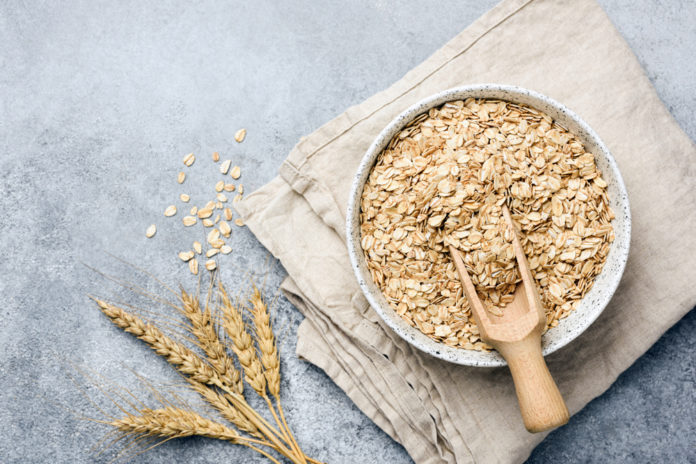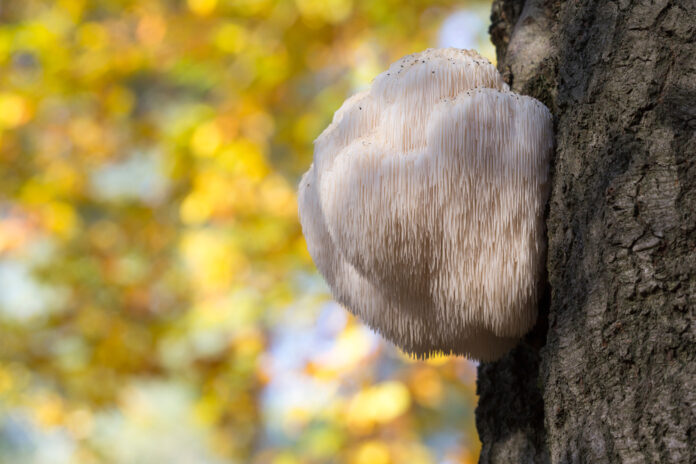Top 10 foods for your dog’s skin and coat

Keep your canine companion’s skin and coat healthy with these power-packed whole foods.
Your dog’s skin and hair health doesn’t depend solely on external factors. It also relies heavily on what you’re feeding him. From chia to sweet potatoes, the following foods work from the inside out to help give your dog healthy skin and a rich shiny coat.
1. Chia
Chia seeds are a rich source of B vitamins, calcium, copper, iron, magnesium, phosphorus, potassium, protein and zinc, and they’re packed with antioxidants too. They contain lots of alpha-linolenic acid (ALA), a plant-based form of Omega 3s. They are gluten free. Chia nourishes skin from the inside out, because its high levels of Omega 3 help combat chronic skin inflammation.
2. Eggs
Eggs are nutritional powerhouses, containing the most bioavailable protein. They’re like a one-ingredient recipe for great skin and coats. Many consider eggs the number one food for hair, giving it strength and luster. Eggs contain lutein, which helps keep skin well hydrated and plays an important role in tissue repair. The zinc in eggs also supports skin health and shiny hair. Egg yolks are a valuable source of biotin, a B vitamin sometimes referred to as vitamin H or vitamin B7, which helps promote healthy skin and coats; hair loss, skin irritation, lesions and fungus can be the result of a biotin deficiency. Biotin/vitamin H can be effective in treating allergic reactions and skin conditions. Eggs contain vitamin A, which helps repair cell damage and keeps skin healthy and coats glowing.
3. Almonds
Almonds contain the entire vitamin E family, tocopherols and tocotrienols — alpha-tocopherol is one of the keys to healthy skin and hair. Almonds are also an excellent source of B vitamins, copper, manganese, magnesium, zinc and bioflavonoids, and offer a trace amount of Omega 3 fatty acids. Since almonds have a high fat content, it is important to store them in a cool place, away from sunlight; better yet, you can store them in the refrigerator for several months, or in the freezer for up to a year.
4. Coconut
Coconut, organic and unsweetened, is the perfect sprinkle for your dog’s food and great for making treats. Give coconut chips a try too. Coconut contains medium-chain saturated fats, which are transformed into energy and contain special properties that act as anti-inflammatory agents to decrease bacterial growth, irritation and inflammation in the body. According to Washington State’s Bastyr University of Natural Sciences, eating raw coconut can reduce the severity of bacterial and inflammatory skin conditions.
5. Carob
Carob is rich in natural sugars and contains all the principal vitamins and minerals, such as calcium, phosphorus, iron, potassium, magnesium, silica, vitamins A, B1, B2, niacin, and protein. Carob is considered an ideal “survival food” because it requires no preparation, lasts a long time, and has no special storage requirements. It does not contain the caffeine and theobromine found in chocolate, so is perfectly safe for dogs. Its vitamin E supports skin health, and it has antiviral and antibacterial properties.
6. Oats
Oats are a strength-giving cereal. They are low in starch and high in mineral content, especially potassium and phosphorus. Oats also contain calcium, magnesium, the B vitamins and iron. They support healthy skin and hair; one of the key ways they do this is by supporting your dog’s gastrointestinal system and helping remove toxins from the body.
7. Liver
Liver from grass-fed animals provides a perfect punch for enhanced skin health. Nutrients include calcium, phosphorus, magnesium, potassium, iron, zinc, copper, vitamins A, B6, B12, C, D and E, thiamin, riboflavin, niacin, pantothenic acid, folic acid and biotin. Try chicken livers for a flavorful boost of Omega 3 and 6 essential fatty acids.
8. Wild salmon
Wild salmon, cooked, not raw, is one of the very best sources of Omega 3s. It provides selenium too. Studies that have focused on the protein and amino acid content of wild salmon revealed that small bioactive protein molecules called bioactive peptides, and one in particular, calcitonin, have significant potential health benefits. The human form of calcitonin, made by the thyroid gland, helps regulate and stabilize the balance of collagen and minerals in bone and surrounding tissue.
9. Cranberries
Cranberries have been used historically to treat a variety of ailments, from rheumatoid disorders, scurvy and fever, to skin wounds and eczema. Cranberries contain a variety of bioactive components, including antioxidant proanthocyanidins, anthocyanins and ellagic acid. Anthocyanins are the pigments that give cranberries their rich red color and have been found to have the strongest antioxidant power of 150 flavonoids tested, even moreso than vitamin E. Anthocyanins have an anti-inflammatory action, and can even help lessen allergic reactions in dogs.
10. Sweet potatoes
Sweet potatoes are considered a super food for skin. They contain a high level of vitamin A and beta-carotene, and are a great source of vitamin E. Sweet potatoes also contain calcium, iron, folate, potassium, copper and thiamine. The vitamin C in sweet potatoes helps accelerate healing and support collagen production.
LOOKING FOR WAYS TO INCORPORATE THESE FOODS INTO YOUR PET’S DIET? CLICK HERE FOR SOME DELICIOUS RECIPES!



